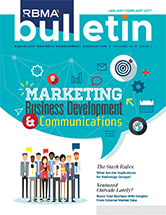In November 2016, Facebook announced that it has been over-reporting 7 and 28-day organic page reach—by a lot, due to a software bug that went live in May 2016. [1]
They apologized, in an unofficial “rock star tour” kind of way. Facebook had already been having a bit of a rough year. Preceding this discovery, there was an announcement that fake news had been running rampant on news feeds during the election, and video views had been under-counted by as much as 35 percent due to varying device types. [2] This announcement of missed metrics comes on the heels of already troubled waters and has many who use the platform for business purposes rethinking their confidence in Facebook.
What Do the Errors Mean?
Facebook has explained that the miscounted metrics affect organic reach only—meaning non-paid post types, at the rate of 33 percent and 55 percent for 7-and 28-day reach, respectively. When looking at Page Insights, Facebook’s tool for performance measuring, it is apparently the Total Reach that has displayed the error, but the other graphs on the page illustrating engagement were not affected. The problem was that the Total Reach was not de-duplicated. This was essentially a basic math problem on their end and means non-unique visitors were counted more than once. Facebook went on to say that the metrics do not affect paid ads and that businesses have not been charged for the counting errors.
What’s Next?
It remains to be seen if Facebook will uncover additional errors as it examines this issue and I think it’s safe to say eyebrows have been raised over whether the counting errors could also have affected paid ad performance. Concerns over the authenticity of reported ad results have existed when looking at reach compared to actions taken based on the chosen objective and actual conversions. To help resolve the over and under reporting problems, Facebook has aligned with several third party companies to help vet their metrics as well as with Nielsen for accurate video view counts. [3]
Metrics mismatch
For some time, SEO’ers have been challenged with accurately reporting on data captured by Google Analytics compared to the data available on Facebook Page Insights or in the Ad Manager. Results from Facebook are, generally, notably higher than data collected in Google Analytics. Reasons for the discrepancies vary, but Facebook states that third party stats are underreported and the primary reasons for differences in visitor statistics include cross-device and cookie-based measurement, the ability for Facebook to better track visitor behavior within a 28-day window, HTTPS vs. HTTP protocol, and ad blocker software that may prevent the Facebook pixel from firing. [4]
Currently, there is no definitive explanation or solution for the differences, though there are ways to improve reporting accuracy such as using Google Analytics URL builder to create custom, trackable URLs and setting up goals in Google Analytics. Work with your SEO lead to get these parameters in place.
Social SEO
The good news is social media is still a viable tool for reaching highly targeted segments of your audience, even while Facebook figures out how to provide the most accurate metrics. To make it more valuable, social media activity, when paired with SEO strategies, can create a positive and enduring effect on search engines. In particular, the primary focus of social media activity is to curate and produce content on social media or on your website and then link to it. Search engines, such as Google, favor fresh content and links that send signals back to Google about your authority.
Becoming regarded as a subject-matter expert or authority on a subject within your marketplace will lead Google into positioning your content and website favorably in search engine results. Remember, Google’s goal is to serve up links to content that it believes matches the intent of the searcher. Producing content for a strong Social SEO effect means making your content relatable to your audience to the point that it is segmented and gets read, is shared, and is searchable. The end result of your Social SEO efforts will be a driver of referral traffic, increased engagement, visibility, and measureable reach.
Resources
1) Newsroom.fb.com/news, “An Update on Metrics and Reporting,” Nov. 16, 2016.
2) CIO-today.com, “Facebook Makes Changes After Audit Finds Bugs in Metrics Reporting,” Nov. 16, 2016.
3) Money.cnn.com, “Facebook admits it messed up more ad metrics,” Nov. 16, 2016.
4) Facebook.com/business/help, “My third-party reporting doesn’t match my Facebook Ads reporting.”
Want to read on the go? Download the PDF from RBMA by clicking HERE.
